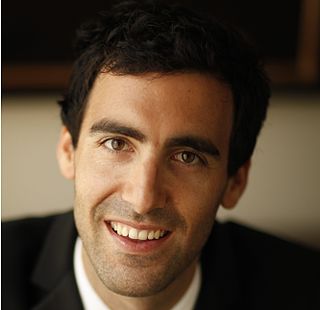A Quote by Edwin Powell Hubble
A scientist naturally and inevitably ... mulls over the data and guesses at a solution. He proceeds to testing of the guess by new data-predicting the consequences of the guess and then dispassionately inquiring whether or not the predictions are verified.
Related Quotes
You have to imagine a world in which there's this abundance of data, with all of these connected devices generating tons and tons of data. And you're able to reason over the data with new computer science and make your product and service better. What does your business look like then? That's the question every CEO should be asking.
Any time scientists disagree, it's because we have insufficient data. Then we can agree on what kind of data to get; we get the data; and the data solves the problem. Either I'm right, or you're right, or we're both wrong. And we move on. That kind of conflict resolution does not exist in politics or religion.
First you guess. Don't laugh, this is the most important step. Then you compute the consequences. Compare the consequences to experience. If it disagrees with experience, the guess is wrong. In that simple statement is the key to science. It doesn't matter how beautiful your guess is or how smart you are or what your name is. If it disagrees with experience, it's wrong. That's all there is to it.
Scientific data are not taken for museum purposes; they are taken as a basis for doing something. If nothing is to be done with the data, then there is no use in collecting any. The ultimate purpose of taking data is to provide a basis for action or a recommendation for action. The step intermediate between the collection of data and the action is prediction.
EMA research evidences strong and growing interest in leveraging log data across multiple infrastructure planning and operations management use cases. But to fully realize the potential complementary value of unstructured log data, it must be aligned and integrated with structured management data, and manual analysis must be replaced with automated approaches. By combining the RapidEngines capabilities with its existing solution, SevOne will be the first to truly integrate log data into an enterprise-class, carrier-grade performance management system.
One of the myths about the Internet of Things is that companies have all the data they need, but their real challenge is making sense of it. In reality, the cost of collecting some kinds of data remains too high, the quality of the data isn't always good enough, and it remains difficult to integrate multiple data sources.


































